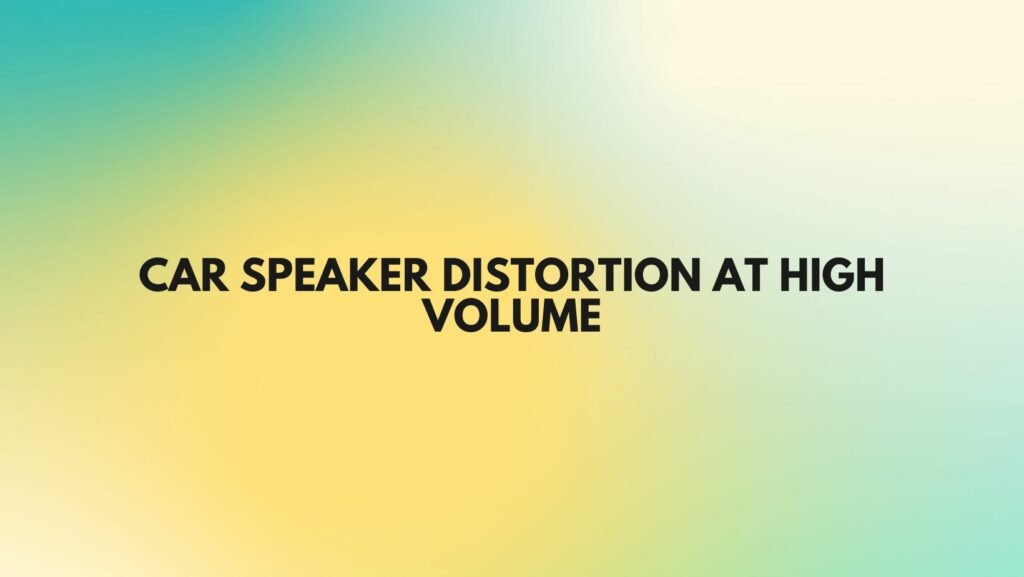Car speaker distortion at high volume can be caused by a number of factors, including:
- Clipping: This occurs when the amplifier is overloaded and unable to produce the full range of the audio signal. This can happen if the volume is turned up too high, or if the amplifier is not powerful enough for the speakers.
- Damage: If the speakers are damaged, they may not be able to reproduce the bass frequencies accurately. This can be caused by physical damage, such as a tear in the cone, or by exposure to excessive power.
- Incorrect settings: If the crossover settings on the amplifier are not set correctly, the bass frequencies may be sent to the wrong speakers. This can cause the speakers to distort, or it can cause the bass to sound muddy and indistinct.
- Poor installation: If the speakers are not installed correctly, they may not be able to perform optimally. This can be caused by incorrect speaker placement, or by using the wrong type of wires.
- Room acoustics: The size, shape, and furnishings of your car can also affect the sound of your speakers. For example, a small car with a lot of hard surfaces can cause the bass to sound boomy.
Here are some tips for reducing car speaker distortion at high volume:
- Use a high-quality amplifier. A good amplifier will be able to deliver clean, powerful bass without distorting.
- Set the crossover settings correctly. The crossover settings on your amplifier determine which speakers receive which frequencies. If the crossover settings are not set correctly, the bass frequencies may be sent to the wrong speakers, which can cause distortion.
- Place the speakers correctly. Speakers should be placed away from the rear deck and doors to avoid booming and resonance.
- Treat car acoustics. Car acoustics can also affect the sound of your bass. If your car is too small or has a lot of hard surfaces, the bass may sound boomy. You can use acoustic treatments, such as bass traps and diffusers, to improve the sound of your bass in the car.
Here are some additional tips for reducing car speaker distortion:
- Use a subwoofer. A subwoofer is designed to reproduce low frequencies, and it can help to take the load off of your main speakers, which can reduce distortion.
- Upgrade your speakers. If your speakers are old or low-quality, they may not be able to reproduce bass without distorting. Upgrading to better speakers can make a big difference in sound quality.
- Get your system professionally tuned. A qualified audio technician can tune your system to ensure that the speakers are getting the right amount of power and that the crossover settings are correct. This can help to reduce distortion and improve the overall sound quality of your system.
If you have tried all of the above and you are still experiencing car speaker distortion at high volume, there may be a problem with your speakers or amplifier. In this case, you may need to take your system to a qualified audio technician for further diagnosis and repair.
It is also important to note that car speaker distortion can be dangerous. If the speakers are distorting, they are not able to reproduce the audio signal accurately. This can make it difficult to hear important sounds, such as traffic noise and sirens. If you are experiencing car speaker distortion, it is important to take steps to reduce it or eliminate it altogether.


